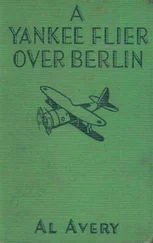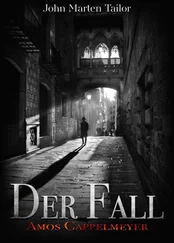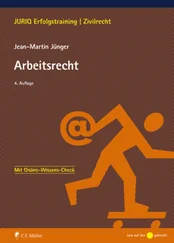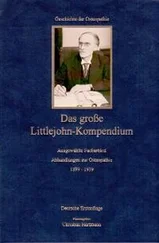As always, the rumour circulated, followed by the reality that our hopes were shattered once again. Come early April 1945, we were on the move once more. No one had any idea where we were going, not even a rumour about that, but sure enough, section by section, hut by hut, the camp was being emptied. When it got to our row of huts, somehow I was able to make a decision that could have made the difference between life and death twice; first by stopping in the camp and later by going out with the others.
I don’t know how I ever did it. I am not, and never have been, a brave person or a natural leader but standing outside with several others watching the prisoners being ousted out and then marched off, it occurred to me that this operation of moving us out was nowhere near as orderly as the previous ones. There was an atmosphere of haste and panic about it.
Once formed up outside in front of the hut, that group was quickly moved off somewhere and the same guards returned to empty the next hut, moving towards us. The doors of the emptied huts were left open, but none of the guards went back inside to check that they were now empty; it seemed that there was not time to do this. I stood there noting all this, with the same bitter disappointment that we were all suffering at not being liberated. It must have been this that led me into disregarding the dangers and only thinking of the benefits of the opportunity I thought I could see, and instantly wanted to put it into action.
With this optimistic attitude I quietly revealed its simplicity to four or five fellow POWs who were standing with me, and they were instantly convinced that it looked like a winner; so, we acted. We went back into the hut to try to make sure we had done all we could do, not in preparation to leave, but to stay.
The plan was so simple. When they came to empty our hut, which we knew they would in just a few minutes, we would make sure that we were at the tail end of the column that would be assembled outside. When it moved off, making sure that the two guards were in front of us and that we were opposite the door of, not the first empty hut, but to give the column time to get going, the third one, we would break away and slip quietly inside and immediately dive into the narrow gaps between the bunks, thereby concealing ourselves from anything but a thorough search.
This all went well and according to plan. All we could do for the first few minutes was to lie there, hardly daring to breathe, and hope that our action had not been spotted from the posten boxes. Gradually the whole area went quiet and we became a bit more comfortable. It was an unusual sort of escape, if that is what it turned out to be◦– don’t leave the Stalag, let the Stalag leave you; but we certainly did not feel like cracking jokes as we were still very, very frightened. While we continued to lie between the bunks, not daring to get up, I started to think to myself, ‘We are going to get away with this.’ but then I remembered the dogs. I had not given them a thought in my plan, but now I thought, ‘That is what they will do, send one or two guards round with dogs and they will soon sniff out anyone left behind.’ I was back to being as terrified as I was when first starting to make the break.
A while passed and I began to get my confidence back as I had started to think that if they were going to check the hut they would have done so by now, as it was getting dark. Eventually I thought it safe to shut the door. Crawling across the floor, to make it less likely that I would be seen from the outside, I slowly and quietly did this. With the door closed we at least had a feeling of more security and, as long as we did it very quietly, we could talk together.
Without noticing, we had already gained something from our escapade◦– it had stopped us craving for food but the cravings soon returned, as they always did, and we decided to take stock. Fortunately, in the days before, when we had realised we would have to make a run for it at some point, we had manged to squirrel away what little spare food we could find. Luckily, a few Red Cross food parcels had got through fairly recently, allowing a quarter parcel per man, so we were comparatively well off for food as we made our bid for freedom. A little extra bread had also been issued because of the move; that meant there was no telling where or when the next issue would be.
Someone amongst us had remembered we would need some water◦– I had not thought about that either◦– and had found and filled a couple of Klim tins (dried milk from Canadian parcels).
When it was completely dark it was agreed that it was safe to get up from between the bunks and sit at a low level, facing each other, where we could talk quietly until it was accepted by all that it was now safe enough to have a very careful look outside. One brave person, not me, volunteered to do this. He was made for the job and hardly being noticed, even by us who were carefully watching, he disappeared. He returned shortly, just as stealthily, bringing the best possible news; there was nobody to be seen out there. There were no lights anywhere and, as far as he could see, the posten boxes were empty and there was no sign of activity at all. The escape plan until now could not have gone any better but we were assuming and relying on being liberated in a short while.
There were no longer any daily BBC news bulletins or even rumours◦– we could only conceal ourselves and wait, which we did for the next two and a half days. An occasional reconnaissance was carried out, but these only revealed what we thought we already knew◦– we were the only ones left in the whole camp. Actually, we were not. Years later I learned that the Germans had abandoned the intention of trying to move every prisoner from this vast camp and fled, leaving quite a number unguarded and uncared for in one far removed compound. This would have been out of our field of vision.
By this time, we were getting worried about our food supply. We were used to meagre rations but now there was nothing at all on the horizon, only the hope of a quick liberation. The truth, unfortunately, was emerging that we did not know when that would be.
*
Next came a dramatic change in the situation: some of the prisoners who had left our compound had been returned◦– not all of them came back◦– and their guards had gone off and left them unguarded. We later learnt that, with the advancing Russians and Allies, it was absolute chaos out there; not even the Germans knew where they were going, and some decided to return the prisoners to the camp before fleeing. This was wonderful news as it indicated that the Germans were losing control and we could emerge from hiding and mix with those returned. Any thought that our escape had achieved nothing, and that we might as well have gone out with the rest, was banished when we heard about their journey.
We were told of a horrific attack on the marching column by our own RAF Typhoons, firing rockets and then being strafed with cannon fire. Many who were in our hut had been killed or seriously wounded. It really stunned me to be told that one of those killed was a Canadian who I knew well. He was someone who could always raise your spirits when things were really bad, and to think he was one of those to be cut down, so cruelly, when freedom was so near, took some getting over. All who went on the march suffered badly. They were forced to keep going, but where to? Even the guards did not know. They had little food or water and had to try to sleep anywhere. Lucky ones were in leaky old barns that cattle were considered too precious to be kept in or a ditch, still wet from the winter rains. The more we mixed and talked to those who had been on the march, the more we appreciated how we had benefitted from going into hiding and staying put.
Читать дальше












